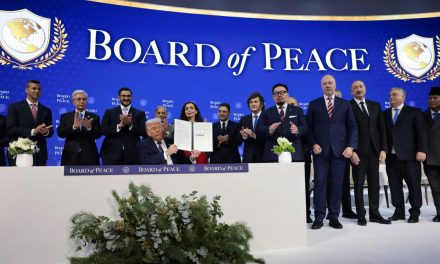
Is Your Phone Watching You? Huawei and the CCP Could Have you Bugged

Have you ever felt like someone was watching you? In our high-tech world, that feeling might be more real than you think, especially if you’re using a certain kind of phone or technology. Let’s dive into the story of Huawei, a company from China, and the certainty that is it being used to spy on billions of people.
Huawei is a super big tech company from China, kind of like Apple in the U.S. They make phones – but they also build equipment to control all of the switching and connecting in a telecom network. And of course, since they are a Chinese company, they are under the thumb of the Chinese Communist Party – which means, simply, if you use their equipment you are being spied on.
Over the past few decades, the technological landscape has seen the rapid rise of numerous giants. Among them, Huawei, a Chinese multinational tech company, stands out both in terms of its global reach and the controversies it has generated. One of the most contentious allegations is that Huawei has intentionally designed its equipment to conduct espionage on behalf of the Chinese Communist Party (CCP). But what is the evidence supporting such claims, and why does it matter to the world?
Founded in 1987, Huawei quickly emerged as a leading global provider of information and communications technology (ICT) infrastructure. Its expansive product range includes everything from smartphones to 5G equipment. By 2018, it was the world’s second-largest smartphone manufacturer, an impressive feat for a company of its age.
However, Huawei’s origins are deeply interwoven with the CCP. Its founder, Ren Zhengfei, once served as an engineer in the People’s Liberation Army. This connection, albeit a former professional association, has caused alarm in many Western circles, suggesting that the company might be serving as a modern trojan horse for the Chinese government.
A primary point of contention has been the company’s alleged backdoors in its 5G equipment. Cybersecurity experts and international intelligence communities have expressed concerns that these backdoors might be exploited by the Chinese government for spying purposes. The argument goes that if Huawei equipment is embedded deep within global communication infrastructures, it could provide Beijing with unparalleled access to critical information.
In 2019, the Wall Street Journal reported that US officials claimed to have evidence that Huawei had the capability to covertly access mobile-phone networks around the world through what are termed as “backdoors” designed for use by law enforcement. While these are standard features in mobile networks globally, Huawei’s potential control over these access points, given its alleged ties to the CCP, presents a significant risk.
Several countries have not taken these allegations lightly. The United States, Australia, and Japan have banned Huawei from their 5G networks, citing national security concerns. The UK initially allowed Huawei a limited role in its 5G rollout but reversed its decision in 2020, ordering the phased removal of its equipment.
The implications of these bans are massive. Not only does it hinder Huawei’s global market expansion, but it also sets a precedent for future geopolitical tech confrontations. The delineation between technology and politics is becoming increasingly blurred.
For Huawei, the allegations have severe repercussions. Trust is paramount in the tech world. If a company is believed to compromise data integrity or act as a puppet for a political regime, its global standing can (and should) be imperiled. Huawei has vehemently denied these claims, emphasizing its commitment to user privacy and security. But what else are they going to say?
However, the challenge lies in proving a negative. How does Huawei conclusively demonstrate that its equipment is not designed for espionage? The bar for evidence is set high, and suspicion, once aroused, is hard to dispel – especially since anyone with common sense knows already that the equipment is compromised for the CCP.
Some countries don’t believe the threat, some countries believe it and don’t care. But 3 billion people had better hope they do not say anything bad about China – big brother is watching!































Olivier has touched on some topics, raised some fears, but kind of forgot the US punchline —- they ain’t in our 5g networks and we don’t use their stinking phones.
He also left out that we, the US, pretty much sold our network off. First we deregulated AT&T by the Reagan administration which set the stage. For AT&T to survive, they broke up the companies, Bell Labs, our premier pure research shop was ultimately sold to the French, then the Finns, and basically neutered. Then we outsourced the network letting Huawei make the electromechanical and electronic components like line cards for our older network portions while we focused on digital and cell. That gave Huawei access to our networks, the experience to move up the technology food chain, and soon they were into digital and cell as well as we suddenly became alarmed and did what we should have a decade earlier: we secured our network by banning them. I don’t care if French, Finnish, or Chinese — you don’t give your plumbing away. Especially to an adversary.
Meanwhile, the second largest North American telecom maker of everything from cell phones to office telephones to central offices and networks —- Nortel — outsourced everything to Huawei. Should not bother us, except we buy Nortel too. Oops, another backdoor.
But that’s how they got here. Like an illegal alien crossing the border willing to accept low wages for honest work and next thing you know, the entire family is here and they want to vote. IOW —- we let them in, we built their company.
BOTTOM LINE: I am glad for the ban. Now we need to question where google, samsung, and apple get their stuff and how safe is that.
The good news is they are banned from our highest tech networks, they are still heavily into our older, yet declining in number, older networks, not sure how much damage they can do there. For cell phones watching you, Oliver left off the fact that Huawei shares 6% market share with all the other losers out there while apple/google/samsung have over 85%. Chances are Huawei ain’t listening or watching you.
Let them listen. I don’t give a shit what they think. I’m damned tired of living in a world where we have to be afraid of the government thugs.